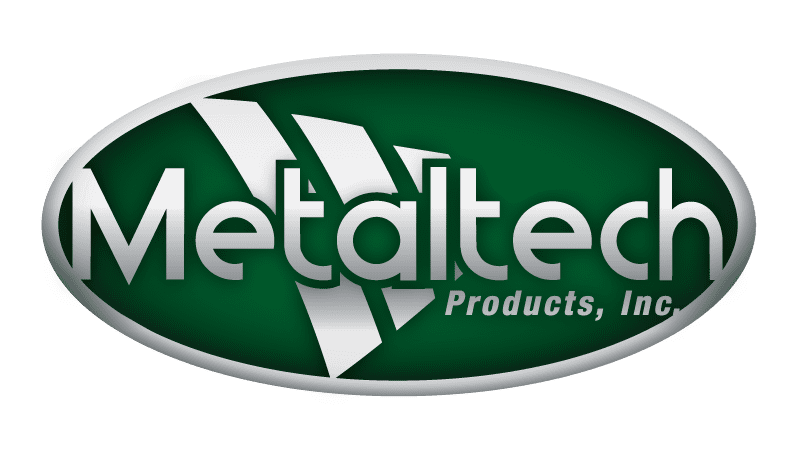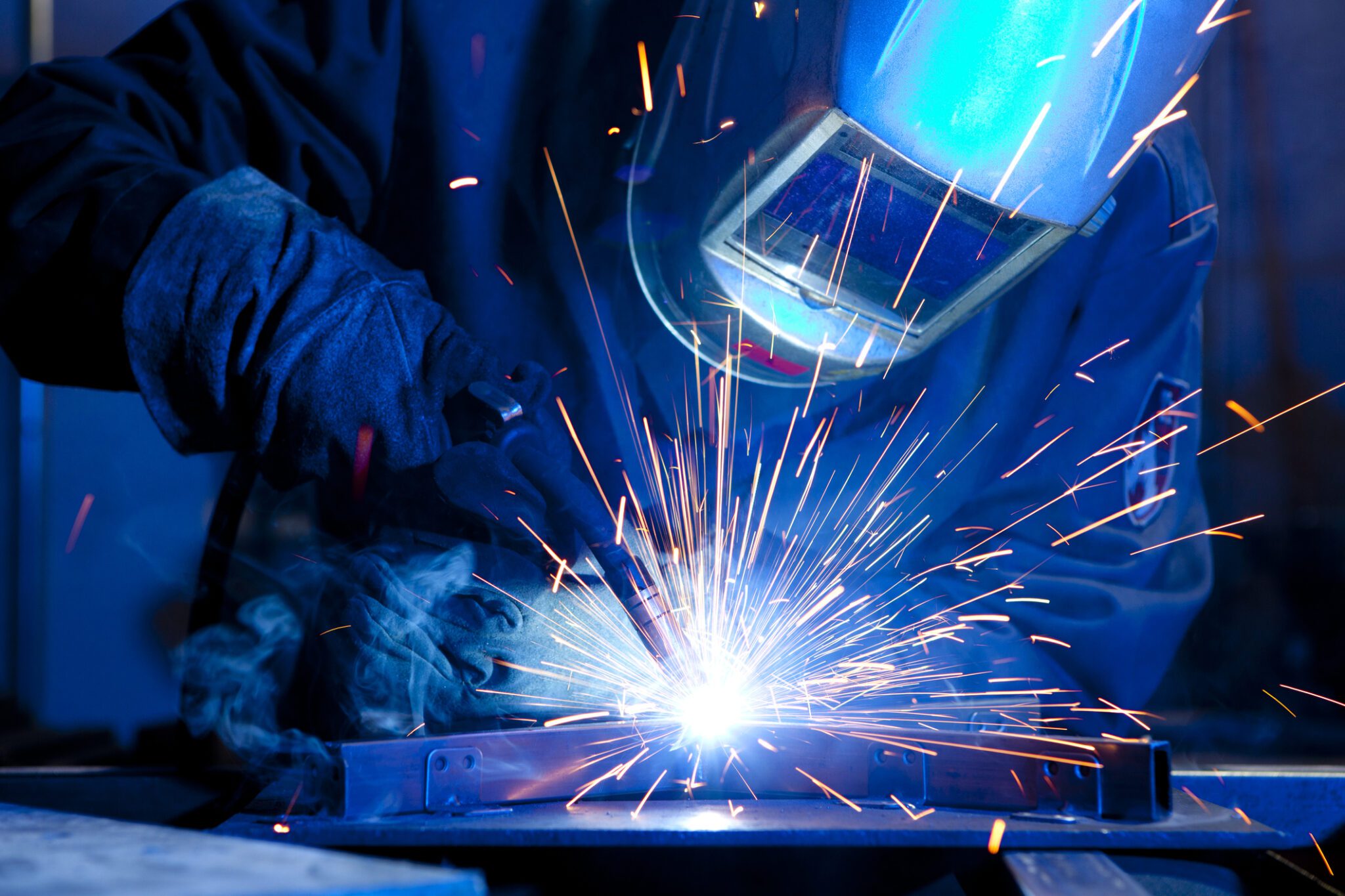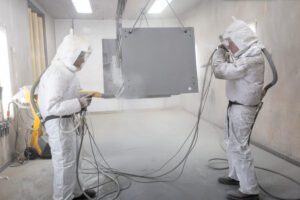From everyday household items to the machines that run our factories, metal plays an essential role in our society and our economy.
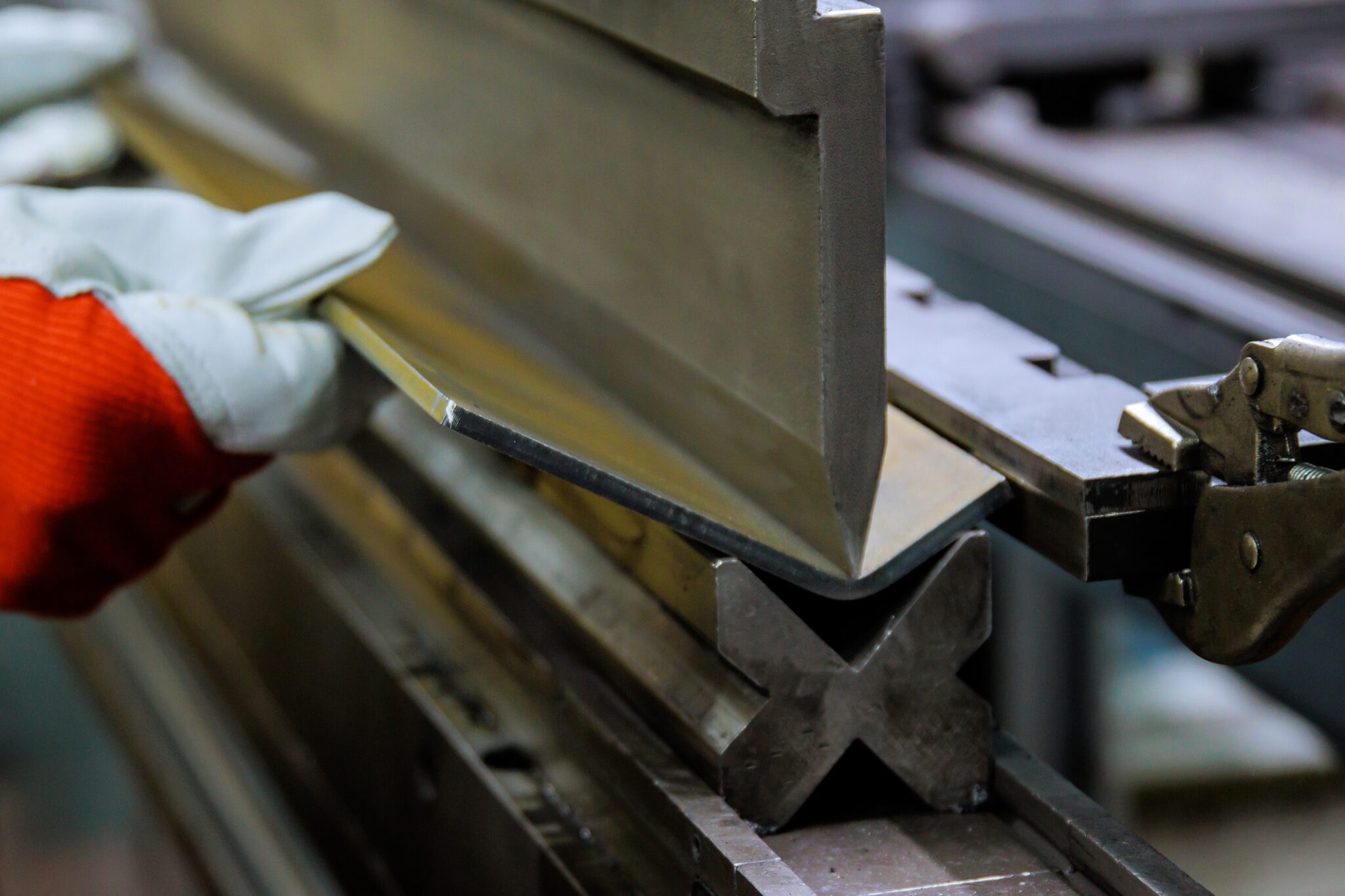
Since 1998, Metaltech has provided ready-to-install metal components for a wide range of industries. Our team has the experience and know-how to create large and small customized parts for numerous products.
The best type or grade of metal depends on the requirements of a particular product. Some metals conduct the electricity that powers our digital devices. Others provide the strength that supports our buildings and infrastructure. And some add aesthetic beauty to our home or office decor.
Here’s an overview of the most popular metals in metal manufacturing today.
Steel
As the most commonly used metal in the world, steel is an iron alloy enriched with carbon. Iron by itself is heavy, dense and vulnerable to corrosion. Adding carbon builds corrosion resistance and strength.
There are about 3,500 different grades of steel, and an estimated 2 billion tons are produced worldwide each year. Common uses include vehicles, ships, medical equipment and household appliances.
Stainless Steel
This versatile material is made with a combination of iron, carbon, chromium and other metals. It is corrosion-resistant and has a wide range of applications:
- Kitchen utensils
- Furniture
- Pipes
- Building structures
- Tools
- Appliances such as washing machines
- Boilers
Carbon Steel
Carbon steel can be categorized as high, medium or low depending on the amount of carbon content. The more carbon, the harder the material. It is commonly used for tools, mechanical equipment and structural building materials.
Alloy Steel
This highly customizable metal is made by combining various other materials with iron. Examples include chromium, manganese, nickel, tungsten and vanadium.
Steel is an incredibly versatile material, essential for various industries. At Metaltech, we specialize in custom steel fabrication, offering services such as laser cutting, welding, and assembly. Whether you need durable components for automotive, medical, or household applications, our team ensures precision and quality in every steel part we produce.
Iron
About 5% of the earth’s crust is iron, making it the most abundant metal on our planet. In fact, approximately 90% of all refined metal is iron.
Iron is highly unstable in unalloyed form, as it will rust in the presence of oxygen. However, it combines well with other materials to form useful alloys such as steel.
Its high melting point gives iron a tolerance for hot environments. It is often used for cookware. Other applications include:
- Chains
- Nails
- Rivets
- Nuts
- Bolts
- Railings
- Ornamental structures
Cast iron is a versatile alloy made with iron, carbon and silicon. It is found in kitchen appliances and engineering components as well as construction projects such as bridges.
Aluminum
Derived from an ore known as bauxite, aluminum is the most common non-ferrous metal on earth. It was first discovered in the early 18th century.
This affordable, lightweight metal is durable, corrosion-resistant and malleable. It possesses good electrical conductivity and won’t magnetize. It is vulnerable to oxidation and corrosion when exposed to salts.
Aluminum is widely used in a variety of products including:
- Power lines
- Cans
- Kitchen utensils
- Window frames
- Vehicles
- Aircraft parts
- Furniture
- Packaging
- Building materials
- Kitchen utensils
Aluminum’s lightweight and corrosion-resistant properties make it perfect for a wide range of products. Metaltech’s precision aluminum fabrication services ensure that your components are both durable and cost-effective, ideal for everything from aerospace to everyday items.
Titanium
Strong, lightweight and versatile, titanium has become a popular choice across a range of industries. Its corrosion resistance makes it a good material for boats, submarines and desalination equipment. Because if its excellent safety profile, titanium is widely used for medical applications including implants and surgical instruments. Other common uses include sporting goods, airplane components and auto parts.
For industries that require strong, lightweight, and corrosion-resistant materials, Metaltech offers specialized titanium fabrication. From medical devices to aerospace components, or electronics assembly, our titanium parts are manufactured to the highest standards of quality and precision.
Copper
Copper is a highly malleable metal that is easy to shape. It is an excellent conductor of electricity.
What is copper used for:
- Pipes
- Currency
- Wiring
- Circuit boards
- Electrical components
- Cookware
- Heating materials
- Jewelry
At Metaltech, we leverage copper’s versatility to create custom solutions for your specific needs. Our expertise in copper fabrication allows us to produce high-precision parts for industries ranging from electronics to cooling system components and beyond.
Bronze
The first alloy made by humans, bronze is produced by combining copper and tin. It resists fatigue, doesn’t bend or crack and is non-corrosive. Bronze also has good thermal and electrical conductivity. Due to its copper content, it will develop a protective patina as it ages.
Here are just a few common uses for bronze:
- Furniture trim
- Cabinet hardware
- Electrical connectors
- Church bells
- Ship components
- Reflectors
Bronze’s durability and resistance to fatigue make it ideal for specialized applications. Metaltech’s custom bronze services include machining for products ranging from decorative hardware to industrial components.
Zinc
As a strong metal with a low melting point, zinc is easy to cast and recycle. It is frequently used as a coating for other metals. For example, it can be applied to galvanized steel to prevent rust. It also develops a patina which further guards against corrosion.
Other common uses for zinc include:
- Industrial
- Marine
- Medical
- Hardware
- Electrical
- Automotive
Magnesium alloy
Non-ferrous and lighter than aluminum, magnesium creates a strong alloy when combined with other metals. It’s easy to recycle, is a good conductor of heat and has excellent hardness.
Magnesium alloy is frequently used in aerospace components, mobile communications equipment and automotive parts.
When lightweight strength is essential, Metaltech’s magnesium alloy fabrication services are the answer.
Get a Quote on Custom Metal Fabrication
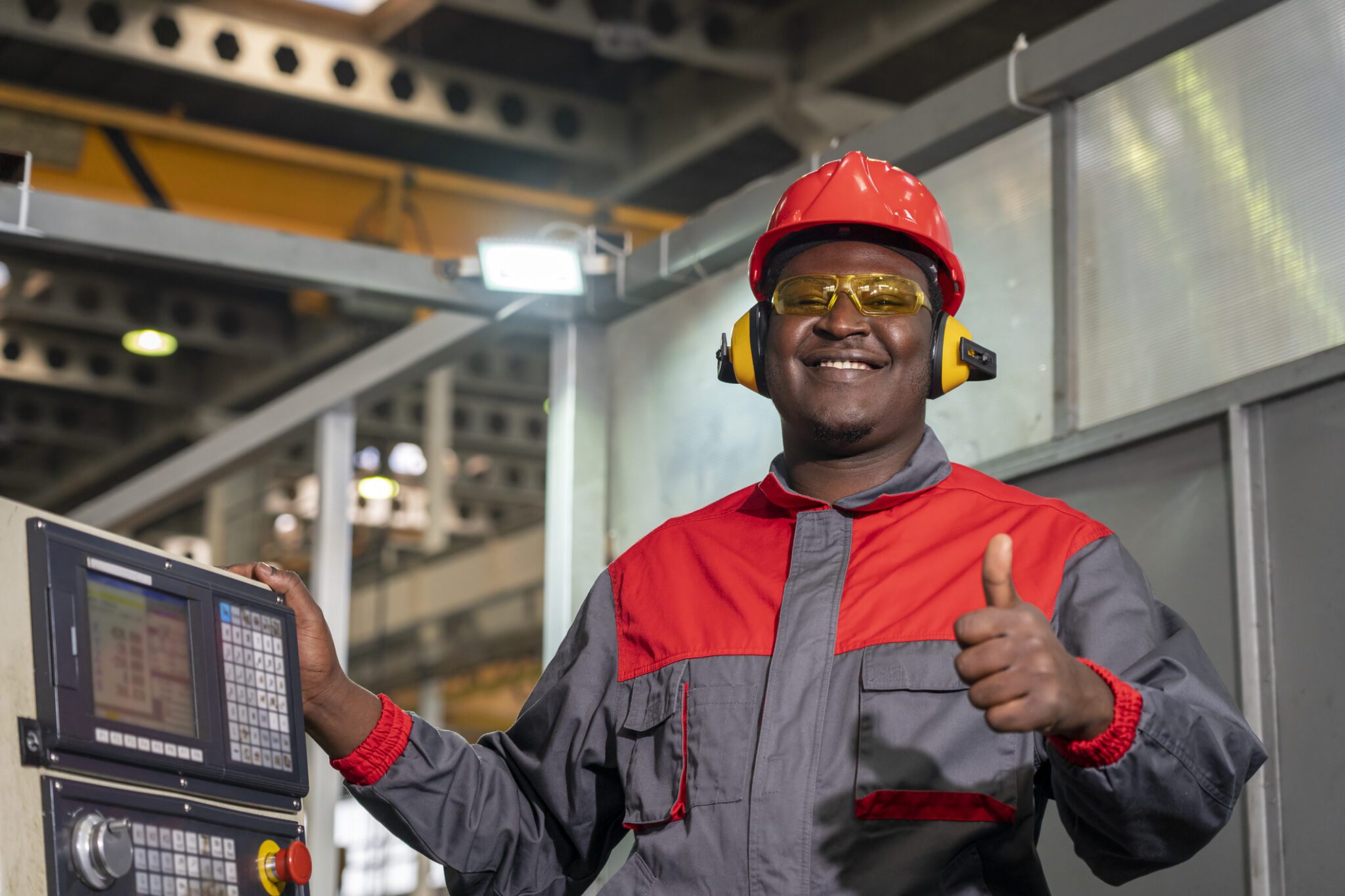
Metaltech’s engineers work closely with all of our clients to produce quality, custom parts for a range of products. Even if all you have is a simple hand-drawn sketch, we will create a detailed design before transforming your idea into reality. From laser cutting and welding to final assembly, we have the experience to give you the results you need.
Ready to get started? Reach out any time to get a quote online.
If you have questions about our services, give us a call at 417-426-5577 or contact us online to get in touch.
Frequently Asked Questions About Robotic Welding
The cost of a robotic welder can vary significantly depending on the system’s capabilities and features. Prices typically range from $50,000 to $150,000, though high-end, specialized systems may cost more.
Welding robots maintain accuracy by using programmed instructions and regularly moving to a cleaning station, where the welding torch is cleaned of metal splatter. This ensures the integrity of future welds and consistent performance.
MIG (GMAW) and TIG (GTAW) welding are commonly used with robotic systems due to their efficiency in creating strong, clean welds on a variety of materials.
The speed of a robotic welder varies based on the type of weld and the material. However, robotic welders are generally faster than manual welders, and some can complete up to 120 inches of weld per minute.
Manual welding is often better for smaller volume projects, custom jobs, or parts that are too complex for robotic systems. Skilled human welders are also required for tasks that involve intricate welding or require on-the-fly adjustments.
No, welding remains an essential trade, especially in industries like construction, automotive, and manufacturing. While automation is growing, skilled welders are still necessary for tasks that require human judgment and adaptability.
Robotic welding is commonly used in industries like automotive manufacturing, aerospace, metal fabrication, and heavy machinery production, where high-volume, consistent welding is required.
Robotic welding involves the use of robotic arms and controllers to perform welds, often requiring human operators for programming and supervision. Automatic welding refers to fully automated processes where the entire welding operation, including loading and unloading, is done without human intervention.
